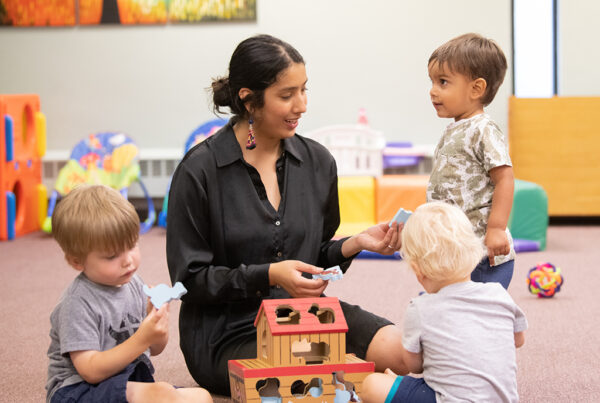By: Bethany Global University Senior navigating returning “home” from Global Internship
November 2022
If you were to tell me a year ago, I would move overseas and be shaped by Islamic Arabic phrases that were commonly spoken around me, I would have likely met you with a defensive stare.
What kind of a Christian would I be if I let aspects of Islam impact my worldview?”
However, during Global Internship this became my reality, though, not in a way you would expect.
This is my story of how God used a couple of Islamic phrases to strengthen my journey as a Christ follower.
For 13 months, I lived in North Africa. In my host culture, the people spoke a local dialect of Arabic, which I had the privilege of learning. Week by week, I became more comfortable with the common phrases used.
About a month in, I began to think deeply about what these terms mean and question why the people of my host culture said them. This was the beginning of allowing the language to structure the way I thought about God and engaged in conversation with local friends, my team, and people back home.
One term used in nearly every conversation, casual or serious, is “Enshallah” which means “If Allah wills it.” If I were planning to go out to coffee with a friend and confirmed we would meet at 2 pm, most times she would reply, “Yes, Enshallah” (Yes, if Allah wills it) or sometimes not even include a yes. Contrary to the states, it was part of the culture to make wishy washy plans, that may or may not happen. You just had to be flexible!
Likewise, if I were speaking about the future or even sharing my plans for the day, the term would be sprinkled throughout the conversation. When expressing concerns or unfortunate news, one would pray Allah would intervene with health or provision by using the phrase “Enshallah.”
Another common word is “Hamdullah” which means “Praise God.” This phrase is used even more commonly than “Enshallah.” Whether you are celebrating with exciting news, or just sharing a simple detail of the day, it is acceptable and expected that God’s name would be exalted.
One example of the term’s popularity can be noticed in a typical greeting. When someone says, “Hello, how are you?” it is normal to respond with a single “Hamdullah.” It is not necessary for a response such as, “I’m doing great, praise God!” The singular phrase is enough, and it took several months for me to get used to this.
As I began to process through why these common phrases held significance, I realized truly admired this aspect of the culture’s outlook. The concept of both submission to and exaltation of God was constantly at the forefront of their minds. Just as certain people in the western church claim to be Christian but lack genuine faith, there are individuals who practice Islam culturally and not personally. Regardless, the concept of putting God at the forefront of every conversation is a consistent mentality amongst the culture.
This led me to reflect on my own daily dialogue. I found myself asking, “Do I really believe God is sovereign enough to decide if I’ll meet a person for coffee? Or does He only have a say in big life decisions such as who I am going to marry? Do I experience simplicities of life and give credit to the One who blessed me with them, or do I only praise God when I get a promotion or witness someone being healed?” My transparent stance with the Lord as I asked these questions allowed me to recognize the parts of my human experience where I included and neglected His hand.
These simple terms encouraged me to see that the One I am in relationship with has everything to do with the ins and outs of my life. Unlike the Muslim belief that God is far off or impersonal, Christ followers believe God has personal connection and relationship with us. When God became man through the person of Jesus Christ, He became like us. Though He is mighty, He is also considered a good friend. The combination of this belief and the cultural worldviews of my former North African context, allows me to know God’s will is good, and He permits me to release worry and trust Him.
Engaging in this linguistic practice allowed me to talk with locals about these thoughts. Each time I used the term “enshallah” instead of “hopefully,” I would be asked if I was Muslim. This gave me opportunity to share my faith and explain the relationship Christians have with God. Surprisingly, this also broke stereotypes that had been placed on Christianity such as our complete disregard for honoring God’s sovereignty. These conversations were unexpected, incredible blessings!
I consider it an immense joy to be taken out of my comfort zone and learn a new way to bring glory to Christ. The two Arabic terms that were once foreign phrases are now familiar reminders that have re-shaped my outward expressions and my heart’s posture. It goes to show you that God can use anything, even a foreign language, to minister to the areas of our hearts he wants to further connect with.




